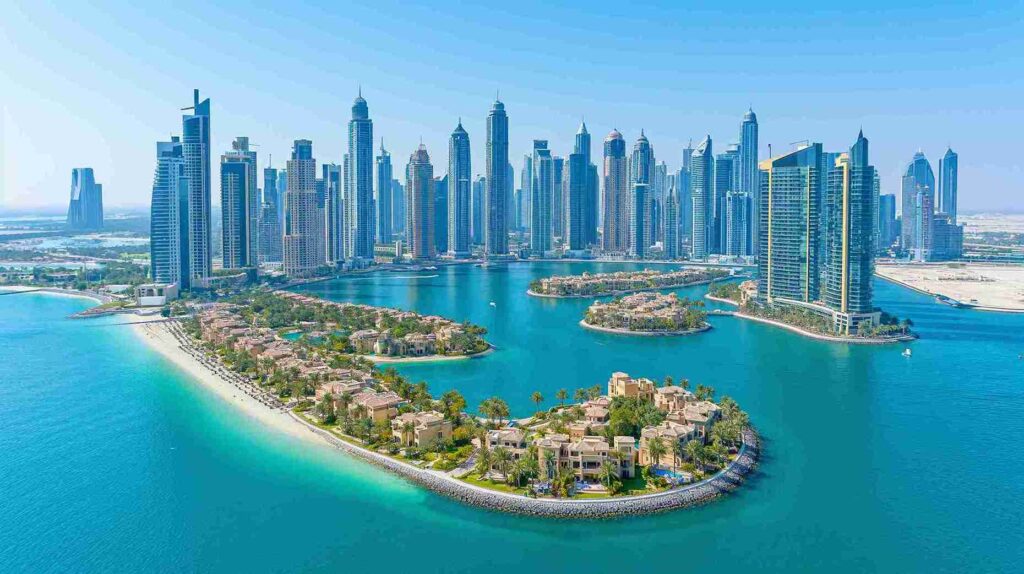
Table of Contents
- Introduction
- What is a Mainland Company in Dubai?
- What is a Free Zone Company in Dubai?
- What is an Offshore Company in Dubai?
- Mainland vs Free Zone vs Offshore: A Comparative Table
- Factors to Consider Before Choosing
- Spark Point Can Help You Decide
- FAQs
- Conclusion
Dubai is a global business hub, offering multiple pathways to set up a company. But with options like Mainland, Free Zone, and Offshore business setups, how do you know which is the best for your specific goals?
In this blog, we’ll break down the differences, pros, cons, and ideal use cases for each option to help you make an informed decision about your company formation in Dubai.
What Is a Mainland Company in Dubai?
A Mainland company is registered under the Department of Economic Development (DED) in Dubai and allows you to operate across the entire UAE market, including direct business with government bodies.
Key Features:
- Can trade anywhere in the UAE
- Eligible for government contracts
- Office space requirement is mandatory
- 100% foreign ownership is now allowed in most activities
- Subject to UAE corporate tax (9% for applicable profits)
This structure is ideal for businesses targeting a broad market or those planning to open physical branches across the UAE.
What Is a Free Zone Company in Dubai?
Free Zones are special economic areas offering business-friendly regulations, 100% foreign ownership, and tax benefits. Each Free Zone is managed by its authority.
Key Features:
- 100% foreign ownership guaranteed
- Tax exemptions (VAT and customs duty depending on zone)
- Fast-tracked licensing and visa processing
- Limited to operating within the Free Zone or internationally
- Cannot do direct business in the mainland without a distributor or local agent
Freezone company formation is a go-to option for startups, e-commerce, consulting, and international trading businesses.
What Is an Offshore Company in Dubai?
An Offshore company is a legal entity established to conduct business outside the UAE. It’s a popular choice for international entrepreneurs looking to benefit from asset protection and tax planning.
Key Features:
- No office space requirement
- No UAE visa eligibility
- Cannot trade within the UAE
- Confidentiality of ownership
- Ideal for holding companies, international trading, and IP management
Offshore business in Dubai is typically registered in jurisdictions like JAFZA (Dubai), RAK ICC, or Ajman Offshore.
Key Differences: Mainland vs Free Zone vs Offshore
| Feature | Mainland | Free Zone | Offshore |
| Ownership | 100% Foreign (in most cases) | 100% Foreign | 100% Foreign |
| Market Access | UAE + International | Free Zone + International | International Only |
| Tax Benefits | Standard UAE Tax Rules | Tax Exempt (depending on zone) | Tax Exempt |
| Office Space Requirement | Yes | Usually Yes | No |
| Government Contracts | Yes | No | No |
| Visa Eligibility | Yes | Yes | No |
Pros and Cons: A Quick Breakdown
Mainland
Pros: Full market access, government tenders, no location limits
Cons: Office space requirement, subject to VAT and tax rules
Free Zone
Pros: Tax benefits, quick setup, foreign ownership
Cons: Limited to Free Zone business, cannot trade directly in mainland
Offshore
Pros: Privacy, low cost, international structuring
Cons: No UAE market access, no visa options
Which Is Best for You? Decision-Making Guide
- Want full access to the UAE market? Mainland is your best bet.
- Running an online business or planning international trade? Free Zone offers cost efficiency and ease.
- Need a holding company or asset protection? Offshore is ideal.
Each structure suits a different business model, and the decision should align with your goals, scale, and operational plans.
Common Myths About Business Zones in Dubai
Myth 1: You can operate anywhere in Dubai with a Free Zone license.
Truth: Free Zone companies need a local distributor to trade in the mainland.
Myth 2: Offshore and Free Zone are the same.
Truth: Offshore companies cannot operate within the UAE or get visas.
Myth 3: Mainland setup is too complex.
Truth: With the right consultant, it can be as quick and seamless as a Free Zone setup.
Final Thoughts: Why Choosing the Right Zone Matters
Your choice of company structure impacts your operational freedom, tax exposure, legal compliance, and access to markets. That’s why Spark Point provides tailored guidance for business setup in Dubai, helping you choose between Mainland, Free Zone, or Offshore based on your goals.
FAQs
What are the main differences between the Mainland, Free Zone, and Offshore in Dubai?
Mainland offers full UAE market access, Free Zones are ideal for international or niche businesses with tax perks, and Offshore is for asset holding or global business without UAE operations.
Can a Free Zone company do business in the UAE mainland?
Only through a licensed distributor or service agent.
Is a local sponsor mandatory for Mainland companies?
Not anymore. Most sectors now allow 100% foreign ownership.
Which option allows me to sponsor employees?
Both Mainland and Free Zone companies can sponsor employees. Offshore companies cannot.
What are the tax implications?
Mainland companies are subject to corporate tax; Free Zones may have exemptions; Offshore companies are generally tax-free for international operations.
Ready to Make the Right Choice?
Spark Point makes business setup easy, transparent, and tailored. Whether you’re eyeing the UAE market or looking for a strategic offshore location, our experts will help you pick the right path.
